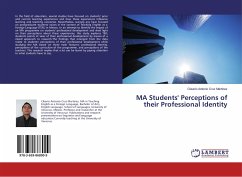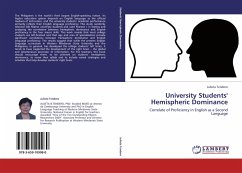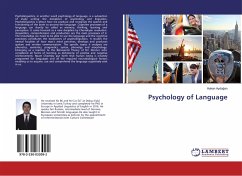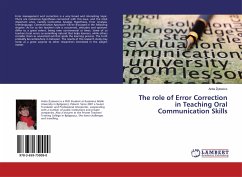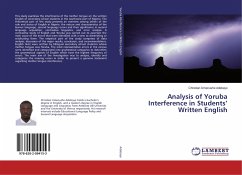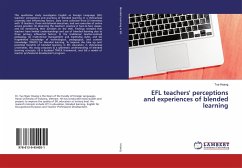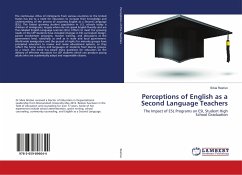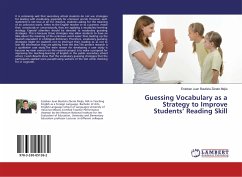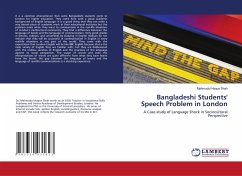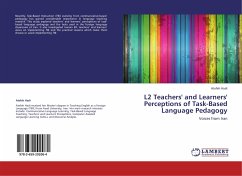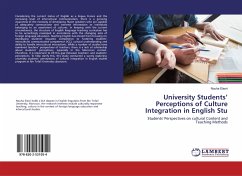
University Students' Perceptions of Culture Integration in English Stu
Students' Perspectives on cultural Content and Teaching Methods
Versandkostenfrei!
Versandfertig in 6-10 Tagen
36,99 €
inkl. MwSt.

PAYBACK Punkte
18 °P sammeln!
Considering the current status of English as a lingua France and the increasing level of intercultural communication, there is a growing awareness of the necessity of developing fluent speakers who are capable of adequately communicate and transmit information to individuals belonging to an assortment of cultures. In keeping with the current circumstances, the structure of English language teaching curriculum has to be accordingly revamped in accordance with the changing aims of foreign language education. Teaching English has moved from focusing on developing students' linguistic competence t...
Considering the current status of English as a lingua France and the increasing level of intercultural communication, there is a growing awareness of the necessity of developing fluent speakers who are capable of adequately communicate and transmit information to individuals belonging to an assortment of cultures. In keeping with the current circumstances, the structure of English language teaching curriculum has to be accordingly revamped in accordance with the changing aims of foreign language education. Teaching English has moved from focusing on developing students' linguistic competence to fostering students' intercultural communicative competence (ICC), cultural understanding and ability to handle intercultural interactions. While a number of studies have examined teachers' perspectives of teachers, there is a lack of scholarship about students' perceptions, especially in the Moroccan context. Therefore, it is important to fill this gap between teachers' and students' perceptions. To help clarify this, this study conducted a survey exploring university students' perceptions of cultural integration in English studies program at Ibn Tofail University classroom.



